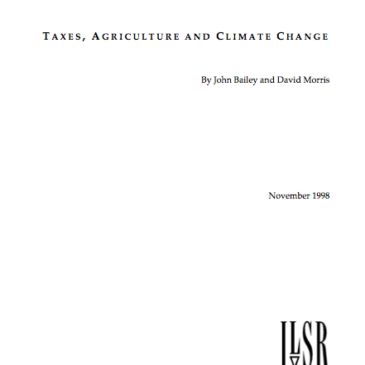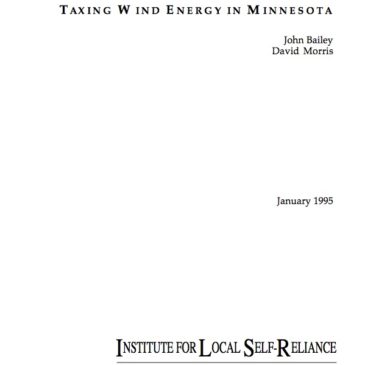Report: Lessons from the Pioneers – Tackling Global Warming at the Local Level
This January 2007 report by John Bailey looks at ten of the most visible and successful cities involved in global warming solutions and finds that reducing GHG emissions below 1990 levels will be a major challenge. Many cities will likely not meet their goals unless complementary state and federal policies are put in place very soon. … Read More



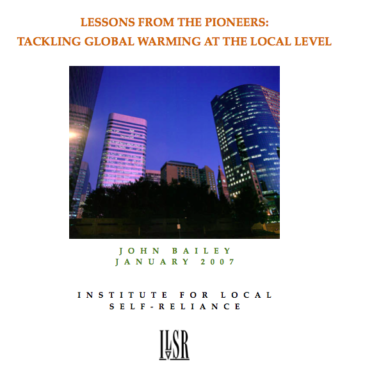
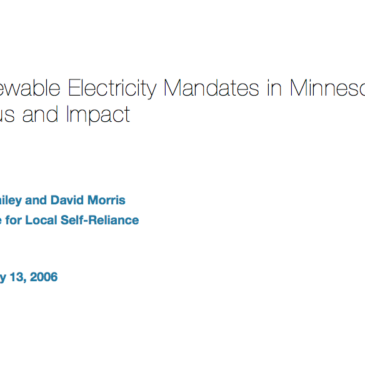
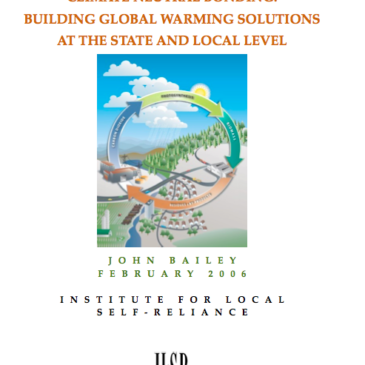
 This February 2006 policy brief by John Bailey provides background and analysis to support a state or local policy that would require construction projects funded with tax-exempt bonds to result in no net increases in greenhouse gases within the community. This brief proposes a strategy that can begin to allow us, as citizens and taxpayers, to make concrete our desire to live lightly on the earth. That strategy is to convince all tax exempt bond issuing agencies at the state and community level to adopt a climate neutralbonding policy.
This February 2006 policy brief by John Bailey provides background and analysis to support a state or local policy that would require construction projects funded with tax-exempt bonds to result in no net increases in greenhouse gases within the community. This brief proposes a strategy that can begin to allow us, as citizens and taxpayers, to make concrete our desire to live lightly on the earth. That strategy is to convince all tax exempt bond issuing agencies at the state and community level to adopt a climate neutralbonding policy. 
